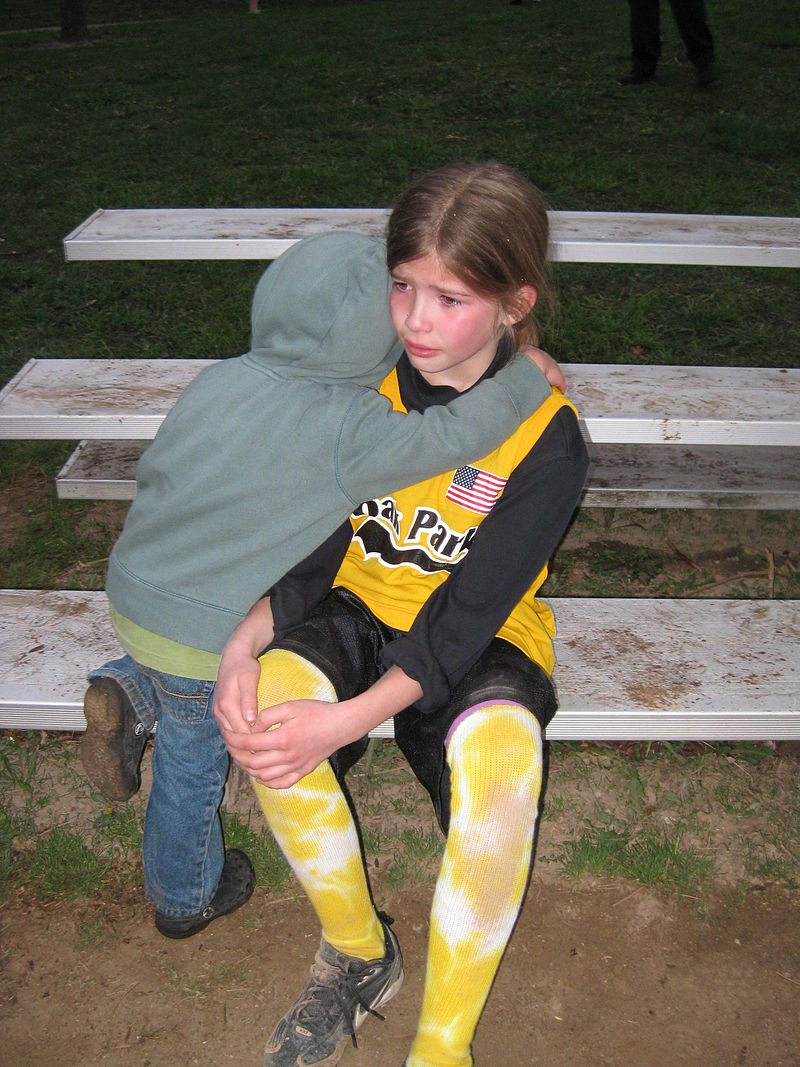There is a compelling argument that we have created (or are at least in the process of creating) such a world as this now.
Many societies have now banned corporal punishment in schools and have active programs to address bullying and the like in both an online and school environment. Imagine (if you will) that a specific child exists in a perfectly monitored environment and as such, does not get smacked for a transgression but is given some other non-physical form of punishment. Also, bullies are sanctioned for their behaviour before it escalates to physical violence, and as such neither the child who misbehaves OR the bully feel the consequence of their actions in a controlled environment.
TCAT117 is essentially correct in that there is no hard and fast rule that will tell you what's going to happen in every case, but there are some broad personality types from which we can extrapolate.
For one, the Bully (thinking that he can now get away with his behaviour as an adult and with monitoring not as strict), walks into a bar, picks on the wrong guy and gets beaten to within an inch of his life by that guy's gang.
The misbehaver pretty much ignores the rules of society and walks into traffic. Truck V Human; the human normally gets the silver medal in such scenarios.
I want to stress that this is not a missive extolling the virtues corporal punishment OR letting bullies get away with their behaviour; what I'm saying though is that the reason why schools are a controlled environment is so that children can test their boundaries and get hurt in a way that ensures nothing permanent happens to them in their formative years.
Humans learn by action / stimulus / response pairing. What your scenario (and my hypothetical hyper-vigilant school) both have in common is that remove the stimulus (consequences) of a poor choice. That means that when a child chooses to act in a particular manner, they don't learn what the real world does in response. When they 'grow up' and get put into organic bodies for the first time, THAT'S when they start to learn. The problem there is that by then, their formative years are over, habits from their online existence are already set and the consequences are more severe because their environment is no longer so tightly monitored or controlled.
Let's not mince words; some choices in the new (real) environment will be fatal. Some of those choices could have been avoided if the lessons had been learnt earlier. BUT, everyone will be in the same boat. You'll end up with a society where everyone of a certain age will possess the same shortfall of experience and society will adapt to cater for that.
This is actually now happening in reverse in many advanced economies. Since women have been actively welcomed into the workforce in many countries, child care has become an industry. In Australia, it's a very tightly regulated industry that incorporates early learning / education. In practice, this means that students are entering school far better prepared than previous generations, and children of stay-at-home parents (either mother OR father) are actually at a disadvantage. Many single income families in Australia now actually still send their children to childcare part time before their school years so they pick up the social and learning skills that are being taken for granted in their first years of school.
Ultimately, what you're describing is the point at which experience becomes a bigger factor in learning and development. Today, it starts to happen in child care; in your world, it can be as minds enter the biological world. Either way, if the majority of people start to gain experience at the same time, society adapts to cater for the expectations an increase in (or lack of) experience implies.

